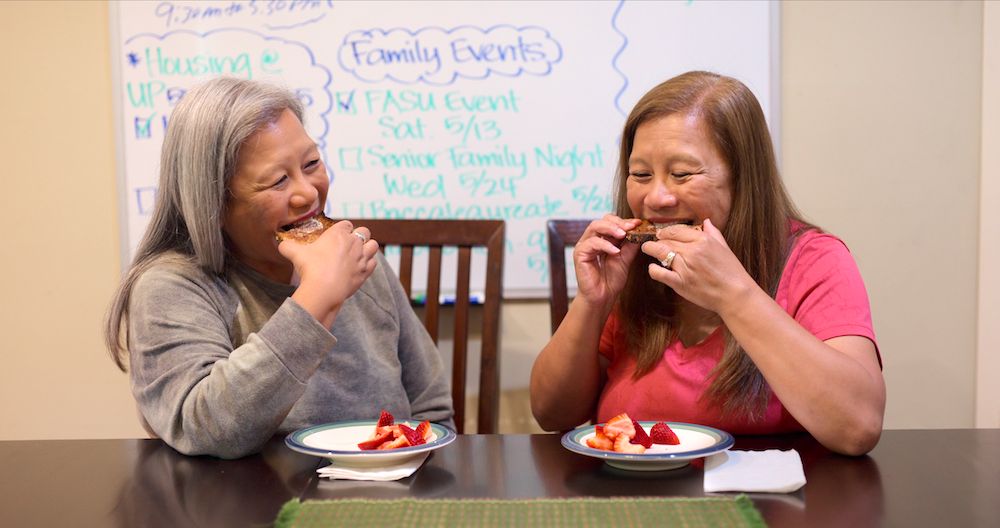On plant-based diets with the Fil-Am twins of ‘You Are What You Eat’

On Netflix’s ‘You Are What You Eat,’ Fil-Am twins discover the benefits of a plant-based diet | Photo from Tudum by Netflix
How big are the benefits of a vegan diet compared with a meat-based diet?
A Stanford University study investigated this with an experiment that was chronicled in the Netflix documentary “You Are What You Eat: A Twin Experiment.” It features four twin pairs—among them are Filipino-American sisters Carolyn Sideco and Rosalyn Moorhouse.
Sideco is a sports consultant and a life coach. Moorhouse teaches religious studies as a high school teacher at a Catholic school in the Bay Area. They were born in the Philippines and immigrated to the United States when they were two years old and grew up in the San Francisco Bay Area.
In an interview with Kollective Hustle, the sisters shared they’ve been part of Stanford’s National Twin Registry for decades and have been called upon as participants in twin studies where there’s been a historical underrepresentation of Asians and Filipinos.
In the eight-week experiment, one twin was put on a vegan or plant-based diet (free of meat, seafood, eggs, and dairy) while the other ate an omnivore diet (including plants, meat, and animal products).
To the surprise of the Stanford research team, the study showed that the twins eating the plant-based diet experienced an increase in life expectancy, reduced harmful fat around their organs, reduced risk of heart disease, and heightened sexual drive.
Before the experiment, both sisters were omnivores. Sideco described herself as a “simple eater” who didn’t put too much thought into her food choices while Moorhouse described her diet as “omnivorous” and “healthy.”

Sideco was asked to follow a more plant-based diet while Moorhouse followed an omnivore one for the experiment. There was also a fitness training program incorporated into their routine.
Sideco found it challenging to shop for groceries and to eat enough protein while Moorhouse found the fitness component more difficult.
The pair told Netflix that the biggest changes for them after the study came from developing a greater awareness of food labels, ingredients, and plant-based options. Sideco started following plant-based restaurants and foodies near her, and even solicited a friend’s help to navigate the plant-based grocery aisles.
“We have to be critical of large agribusiness because it does touch the broader community more. We can be critical of that and also look to Indigenous practices and farming practices of people of color that are sustaining themselves and their communities, thriving off the lands that they’ve cared for,” Sideco told Kollective Hustle about how our environments have dictated what we eat.
“We’re told that we’re not Filipino if we don’t eat pork. Now, millennials that are second, third, or fourth generation Fil-Am are going back to pre-colonial practices because they know the health disparities”
After the study, Moorhouse remains an omnivore but chooses a more ‘plant-forward’ approach and thinks more consciously about her food choices.
“We’re told that we’re not Filipino if we don’t eat pork. Now, millennials that are second, third, or fourth generation Fil-Am are going back to pre-colonial practices because they know the health disparities. They work in these fields and they’re tracing that history back. They’re asking if we can replicate a pre-colonial diet. I think what’s exciting is that people are trying to answer that in their own ways,” Sideco adds.

